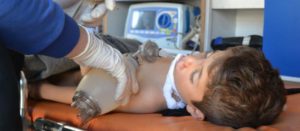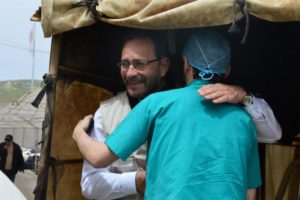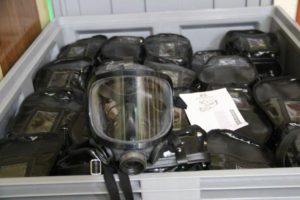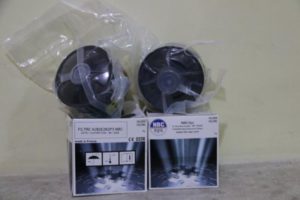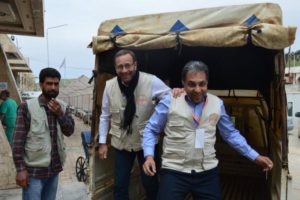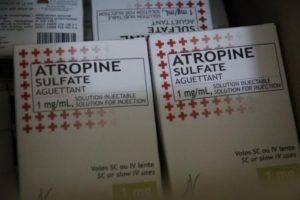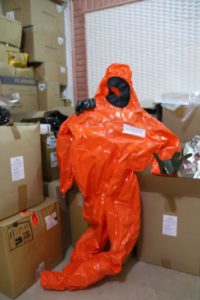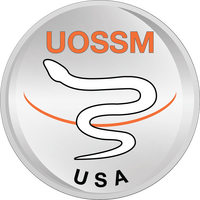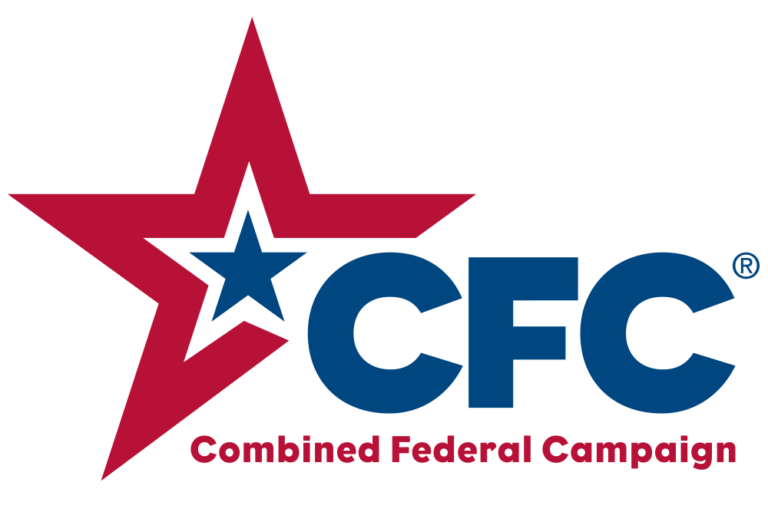Washington DC- On April 4th, a chemical agent was dropped on the town of Khan Sheikhoun in Idlib, Syria. The nerve gas killed over 100 people including over 25 children and injured hundreds more.
UOSSM’s Response:
UOSSM staff were among the first responders to the attack. 38 victims, of which six were children and 12 were women, were brought to a UOSSM hospital to receive immediate, emergency treatment. 27 victims in critical condition were then transferred to specialized medical facilities in Turkey. Four patients admitted to UOSSM’s hospital died from the attack. Patients were treated with oxygen, Atropine, Diazepam and Hydrocortisone.
Medicine and Supplies Distributed:
UOSSM purchased and distributed 10,000 ampoules of Atropine to 18 hospitals in Aleppo, Hama, Idlib and Latakia.
The WHO provided UOSSM with 3,500 ampoules of Atropine, 1,000 ampoules of Pralidoxime, Salbutamol and Dexamethasone to be distributed to hospitals and medical points in: Aleppo, Hama, Idlib, Latakia for chemical attack preparedness.
A convoy of emergency aid arrived in Syria on Sunday, April 9, from UOSSM France, in collaboration with the French Government, Turkish Government and the Red Crescent. The medicine and equipment are being distributed to hospitals across Syria.
The Aid Convoy Contained:
• 500 ampoules of Atropine (antidote for nerve agent)
• 500 ampoules of Pralidoxime
• 500 ampoules of Diazepam
• 100 protective facemasks
• 100 chemical suits
• 224 decontamination filters
Chemical Weapon Response Training:
UOSSM organized intensive training for chemical weapons response for Syrian hospital staff in: staff safety procedures, decontamination, emergency care and hospitalization of victims.
The training was led by Dr. Raphaël Pitti, a French professor, UOSSM France Board Member, and specialist in war medicine. Mobile clinics are also distributing brochures and meeting medical staff for chemical weapon preparedness.
UOSSM is setting up chemical attack first response areas inside hospitals throughout Syria to decontaminate injured patients and provide treatment.
Dr. Tammam Lodami, Northern Syria Medical Director for UOSSM estimates 70,000 ampoules of Atropine, 5,000 ampoules of Pralidoxime and 350 chemical suits are needed just to prepare the 70 hospitals in the North of Syria for chemical attacks.
How Have Your Donations Helped?
Through your generous donations, UOSSM sent life-saving antitoxins and protective equipment for doctors and staff along with implementing training programs. Our goal is to ensure that all hospitals in Syria have the necessary medicine and training to respond to any future attacks. Our recent hospital report revealed that less then half of all Syrian hospitals are prepared for chemical weapons attacks. We need your help:
Please Donate & Share:
